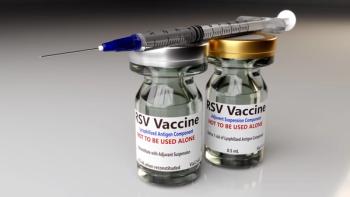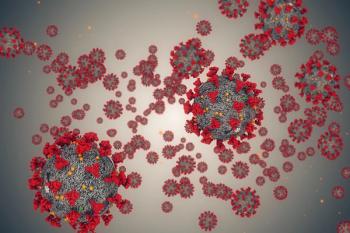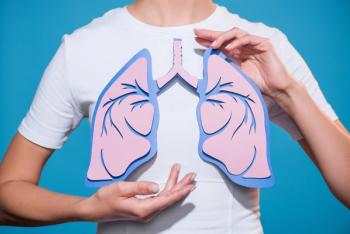
Chronic Fibrosing ILD With Progressive Phenotype: Patient Education
Transcript
Neil B. Minkoff, MD: Ms. Repola, I know there are many resources and education available for COPD, diabetes, and rheumatoid arthritis. What was available to you when you were dealing with this diagnosis early on? How did you become educated and where are the places you were able to get support?
Dawn Repola: I’m an entrepreneur and my career was spent in the healthcare industry. I consider myself lucky that in 2009 when I was diagnosed, I did my own research and didn’t find anything available. In 2014 one of the companies that I cofounded was with a pulmonologist. I went to him shared that I have an ILD diagnosis, what do you think? I shared the information with him and he pointed me to some resources. A lot of them were medical journal articles. Once I got into the ILD clinic and treated I realized that I had a good rapport with my pulmonologist and he was a fountain of information. He was so careful and so good about explaining everything that he could to me along with his nurse practitioner. She’s excellent too. And then I participated in a clinical trial. The doctor who was the principal investigator for the trial was a wealth of information. I found that the Pulmonary Fibrosis Foundation has good information. I will tell you that because I didn’t have IPF, I have to take everything that I get from them and then translate it into what does that mean for my flavor, if you will. The other thing that has been helpful is quite frankly my pulmonary fibrosis support group. I am by far the youngest person that attends that group. Most of them have IPF, but the physicians, researchers, and other healthcare professionals come in and they give us information. We’ve had speech language pathologist come in. We’ve had folks from pulmonary rehab come in. Folks who were talking about the genetic research that’s going on. And, all of that has been really helpful in building my background and helping me understand. Other patients have been tremendously helpful as well.
I’m living the day to day. How do you manage your oxygen? And what do you do - when you’re on oxygen all the time and you have 50 feet of tubing. We have 3 cats. I was like what do I do, because they are really attracted to that vinyl tubing, what do we do? Then the last place that I’ve found information was on closed Facebook groups that are useful because healthcare professionals moderate them.
I like to go in there because it’s a good conversation. There’s been a lot of conversation around lung transplant. I’m nowhere near that and I’m pretty convinced that I don’t want to get anywhere near that. I focus on what I can do to preserve my lung function and make sure that never progresses to that point. Those are the places that I have found to be helpful. I can’t say enough about how great having a really experienced healthcare provider, my pulmonologist is. He’s super knowledgeable and really trustworthy. I feel so grateful to have him in my court.
Neil B. Minkoff, MD: Did you feel like there were unmet needs in terms of helping you understand your treatment and perspective of the disease?
Dawn Repola: Yes. The Pulmonary Fibrosis Foundation has great information. We had a very hard time explaining to my family and my husband’s family, what was going on. It’s really hard to explain this disease. Everybody sort of gets it, when you’ve been diagnosed with a form of cancer; people understand that. When you say, “oh I have interstitial lung disease, it just goes right over their head, right.” Giving them pamphlets and directing them to the website helps educate them. I had to remind them that I don’t have IPF, because of course part of what that says is that you’re going to die in 3 - 5 years. Which is not accurate for my diagnosis. If I could wave my magic wand, I would really love to have information that was specific to chronic hypersensitivity pneumonitis. You know, my friends who have MSIP [Musculoskeletal Injury Prevention], they’d like to have some specific information. We’d like to understand, how does this apply? I was fascinated to hear a different way that you’re thinking about it now. And then specifically what does that mean for each of our different disease states? That would be helpful.
Newsletter
Stay ahead of policy, cost, and value—subscribe to AJMC for expert insights at the intersection of clinical care and health economics.









